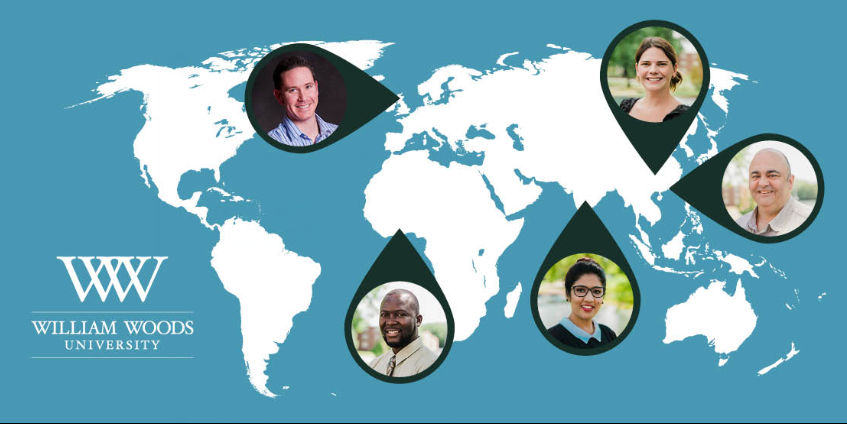In a number of unique ways, William Woods strives to “bring the world” to its students. Through experiences such as study abroad, the Woods Around The World program and International Film Series, the global perspective is never too far out of mind at WWU. That includes inside the classroom, where five members of the William Woods faculty who are either from foreign countries and/or have taught internationally bring a unique outlook to their work. The five faculty members recently shared their experiences with The Woods Today:
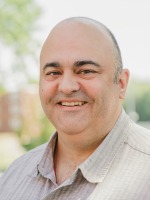
Stephen Saravara – Associate Professor of Criminal Justice| Hong Kong
Stephen Saravara, Associate Professor of Criminal Justice, was inspired to teach and study abroad in Hong Kong initially from a student, who wanted a unique internship that was not local. Saravara later learned of an intriguing internship opportunity during a conference he attended, where he met two people from the Hong Kong Police Department. From that experience, he created the prototype study abroad program that he ran for three years.
“It started from my own knowledge of Hong Kong and a student walking into my office saying I want to do an internship,” Saravara said. “It was a hard internship to get into a world bank and he did well. It worked out well for the student. That is how it started.”
The next opportunity for Saravara was when he taught a summer class at a school in Hong Kong. The class was a comparative course that focused on crime, culture, business and comparing Hong Kong with the United States. He noticed that students in Hong Kong are more formal than students in the United States.
“Our culture in the United States is becoming more like a rating system,” Saravara said. “We rate our experience at restaurants, oil change services. Everyone wants to have a hand in saying I like that, or I do not like that, but the difficulty with ratings is that it does nothing for the student in terms of learning anything. Rather than ratings, I think if students have questions, they want additional readings, which is a good thing because they are looking at the end goal more than ‘what I am getting out of it?’”
One amusing challenge that Saravara encountered in Hong Kong was the perception students there had of what the students in the United States are like, and what it is like to live here. Some of the students in Hong Kong based their perceptions on TV.
“I had to explain that this silly show on TV called “Honey Boo Boo” is not real, and that is not what the United States is really like,” Saravara said. “It is funny to think what they thought was real – they only know what they see in the media.”
His advice for professors and students is to go international, take advantage of the experience.
“You have a perception before you go of what things will be like, then when you get there you experience the reality,” Saravara said. “In my opinion, as humans, we have more in common than we have such rigid distinct differences. You learn that by going to different countries and realizing that we are connected in an important way.”
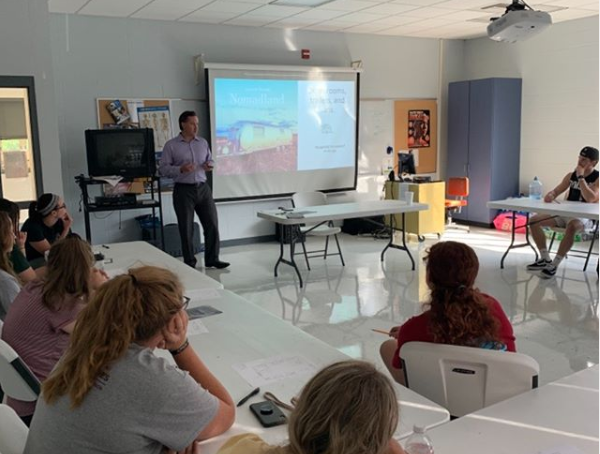
Erik Hillskemper – English Professor| Scotland
Associate professor of English, Erik Hillskemper earned his PhD and taught lower level literature courses at the University of Aberdeen in Scotland.
His days included getting up in the morning and going to his part time job, working from 8-12 and going straight to school from there. Hillskemper would study until about 3 p.m. and have class at 3:30. He would teach 50-100 students and then go home.
He remembers being in a crowd of American kids sitting in a dorm room in the kitchen and four or five of his peers talking about the old American cartoon, “The Simpsons.” It was special because they were all homesick and being in a room with familiar voices talking about something American was fun.
“I like the show, but I was not a huge superfan,” Hillskemper remembered. “It was a part of what we miss from home. We were laughing about it and that was kind of fun. When you met an American student over there, they were not from the state where you are from – there was a kid from Tennessee, a girl from Florida. That was a fun night, we were all overseas for a while and found each other.”
He wanted to teach in Scotland because of his specialty in English and Irish literature and he wanted to learn more about both. His two advisors taught at the University of Aberdeen and he learned a lot from his master’s research.
“I saw they were both professors at the University of Aberdeen,” Hillskemper said. “It became a big attraction for me. My advisors were experts in the field and would take what I wrote in my dissertation and rip it apart. They told me to read these 50 books. You do that and you are a little smarter. You come back and become a not peer but more at a level of their discipline.”
Hillskemper would recommend traveling but does know the challenge of flying back and forth. He tells students to find college representatives that make it easier to study aboard and not go through as many loopholes. Now, at William Woods, he feels that teaching international students is easier and he understands the little things like the keyboard being different and how to teach that.
“Stay aware of culture shock,” Hillskemper said. “Some of our international students are some of the best students. Be aware of that and be compassionate about them.”
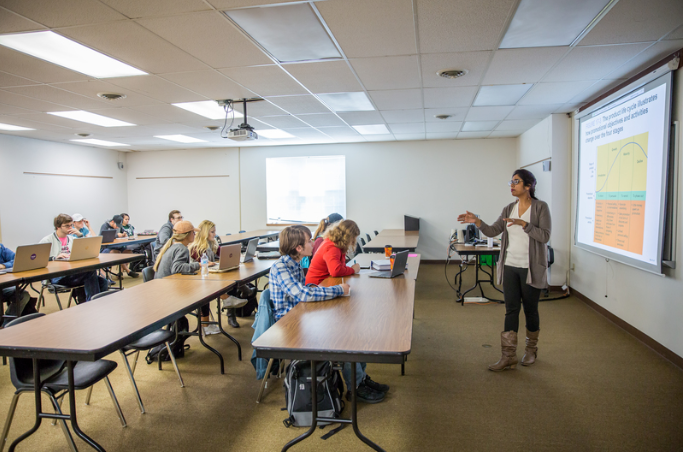
Dr. Miriam O’Callaghan- Assistant Professor of Management| India
Miriam O’Callaghan, Assistant Professor of Management, was born and raised in India to an Muslim Indian family. Growing up, she faced many restrictions, with most of the rules based on religious belief. As a girl, she was restricted from doing so many things that she wanted to do. For example, there were some games she was not allowed to participate in, or go beyond certain limits. But she did learn from the experience.
“It helped build more resilience in my life,” O’Callaghan said. “I will not complain. It only made me strong. But it was hard, different and difficult.”
She got the opportunity to move to the United States when the vice president at Stratford University in Washington, D.C. saw her profile on Linkedin and thought her expertise in emotional intelligence could help them in making the students learn more about the subject. They invited O’Callaghan on a cultural exchange visa for the first time in 2014. Later, while she worked for a company in Australia, the vice president of Stratford University contacted her again in 2016.
“He said that my past performance was good, and that the students loved my sessions,” she said. “He asked if I would you like to return to Stratford, but this time for two years. It was a better contract, higher income, and new opportunity, so I moved to the United States permanently. My life changed.”
When her contract ended at Stratford University, she decided to apply for a professor position at William Woods and got hired.
“When I got hired here, I loved it,” O’Callaghan said. “The students are good, and my team is excellent. The people are good. It is kind of a community here and I am enjoying it.”
At WWU, she finds that students do not ask as many questions as they did in India. A country with a population of more than one billion, it was not surprising that her classrooms in India were much larger. For example, one of O’Callaghan’s classes had 105 students and she had to use a voice amplifier because it was so huge.
“People’s beliefs and lives are different,” O’Callaghan said. “In the United States, people are more individualistic whereas in India, it is more collective society. Even students live in the collective and come together as groups more often. It is a little different but both are beautiful.”
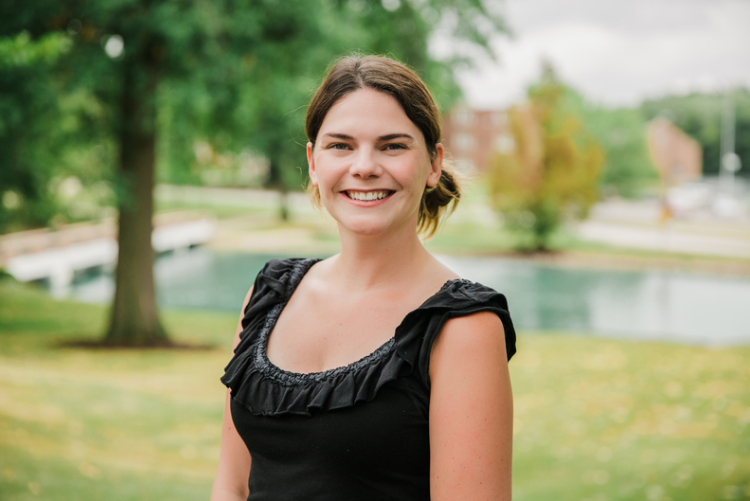
Rachel Turney, Assistant Professor of Education | China
An average day for Turney in China started with taking a tuk-tuk motor bike taxi to class. She would teach three classes and sponsor the English Club. After she finished working for the day, she would go to a food vendor and eat with students. Then, she would go to a coffee shop to learn Mandarin Chinese with a tutor. For dinner, she would meet teachers.
“A funny story in China was that the only people who would be aware of my name would be from Rachel from [the TV show] “Friends,’” Turney said. “Anytime I would introduce myself they would not understand my name so I would just say it’s like Rachel from “Friends.” Then people would get it.”
It was challenging for Turney to get around China. Sometimes, she would need to take the bus and get off several different stops to get where where she was going. For example, it initially took her weeks to find out where she could buy something basic, like contact lens solution.
“Everything was more challenging, and you have to do more work when you are living abroad to get basic things,” shesaid. “The best part is that while everything was more work and more challenging, you were also constantly learning and being pushed to find yourself. Traveling helps to find yourself and your place in the world.”
Now at William Woods, Turney has the time to research and travel to various places during the breaks. She is busy during the school year with teaching classes and working with students and does not have time to do all the academic reading and research she needs to do. During breaks in the school year, her research includes humanity projects, helping advance human rights in other countries and observing in classrooms in other places.
“I am interested in that because the American education system needs be a lot stronger which can happen by observingwhat is working other countries,” Turney said.
In December, Turney will travel to Finland where students perform better on a standardized test than any of the other countries that participate. She will observe and watch the students to bring back knowledge to the United States about what is happening in Finland and how it can improve education here. Something Turney found in her research was that they have more breaks and then perform better on tests; it’s one reason that more time is being added in the educational day in the U.S.
“They all seem to do well on this particular important test,” Turney said. “The difference may be that they have a high rate of happiness in there and I want to see those two things come together – that the children are happy and learning at ahigh rate.”
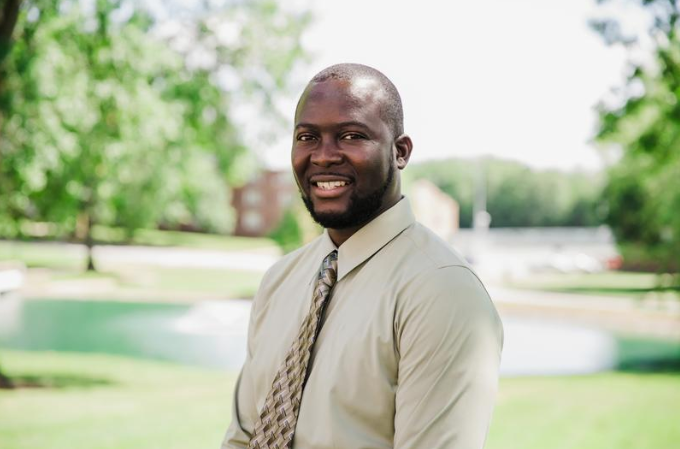
Charles Dodoo- Assistant Professor in Art| Ghana
Dr. Charles Dodoo, Assistant Professor in Studio Art and the Director of Mildred Cox Gallery, grew up in Accra, Ghana. Ghana is a tropical country located along the Atlantic Ocean and the Gulf of Guinea, in West Africa.
As an educator and researcher, Dr. Dodoo believes the design of a holistic curriculum that encompasses the range of learning needs of students, while simultaneously incorporating their interests in a cohesive, challenging, culturally relevant curriculum is relevant for students’ growth. In teaching, he describes the art programs in Ghana and United States universities as somewhat similar, with each dependent on the mission and vision of their respective institutions. To earn a Bachelor of Fine Arts degree in both nations, he said, students are generally assigned to advisors who assist them in selecting courses that satisfy the requirements of their programs.
“Every student is unique,” Dodoo said. “You have to learn how to navigate every aspect of their needs into the curriculum. It is great to have a supportive administration, who have the interests of the faculty and students.”
Being influenced by the Ghanaian and western traditions in Ghana, Dr. Dodoo has taught art in K-12 and at the college level in the United States and in Ghana. He views his background as a melding of the two traditions which is reflected in his teaching, curatorial practice as well as his art. He noted that from his multicultural experience in these diverse environments, he has learned how to incorporate his background as an educator into his curriculum. Further, Dr. Dodoo views traveling as an avenue to research new approaches and paradigms in pedagogy.
“It is my passion to travel, explore and learn new cultures,” Dodoo said. “Knowledge is never contained in one environment or concept, it is like a rhizome that is experiential and scattered. It is within this scattering that space for a search and research is created, for new knowledge to grow and flourish within us, which we don’t just harness, but share through teaching.”

